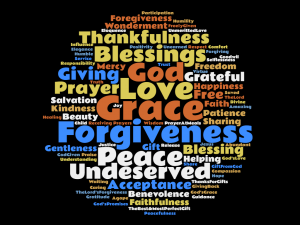Readings.
Habakkuk 1:1-4, 2:1-4. Habakkuk complains to God that justice is perverted and God’s help does not come, but then, as he waits for God’s answer, God’s word comes to him offering him a vision of the downfall of the proud and the vibrant life of the righteous.
Psalm 119:137-144. The psalmist celebrates God’s regulations, affirming their value and goodness for all time, and giving thanks for the strength they offer even in times of hardship.
2 Thessalonians 1:1-4, 11-12. Paul celebrates the faith, love and endurance of the Thessalonian Christians in the face of persecution and hardship, and prays for God’s strength to sustain and inspire them, so that they may glorify God.
Luke 19:1-10: In Jericho Jesus invites himself to be a guest at the house of a chief tax collector, Zacchaeus, in spite of the criticisms of people. As a result, Zacchaeus is transformed into a man of generosity and compassion
Rev Tania writes:
Once again the question of repentance and forgiveness is highlighted in the Lectionary. This time, there are two complimentary emphases in the readings. The first is the need to face our own darkness, greed, fear and empty worship, confess it and receive God’s forgiveness for ourselves.
Habakkuk reflects God’s displeasure at lovelessness and faithlessness, and call for repentance. The psalm celebrates the goodness of God’s law and the liberation that comes through repentance and forgiveness. The Gospel tells the story of someone who experiences this reality and is deeply changed and healed.
The second emphasis this week is that of the need to offer grace, welcome and forgiveness to others, especially those we would usually be tempted to reject. Within all the readings, God’s offer of forgiveness is extended to all. In Paul’s letter to the Thessalonians, he encourages the church to remain faithful and loving even as they endure hardship and persecution. In the Gospel, Jesus reaches out to Zacchaeus, the hated tax collector, and enjoys fellowship with him, which is what ultimately transforms him.
In the work of justice, forgiveness can feel like weakness, giving up the high ground, or letting “perpetrators” off the hook. But, until we can admit our own faults, and reach out to those we may disagree with or oppose, we have not learned the way of Christ. And if we truly believe that God’s reign is the way to healing and liberation for our world, then we must also embrace forgiveness – both received and given – as an integral part of God’s work among us and in us.
May we find the grace to receive and share forgiveness as we worship this week.

